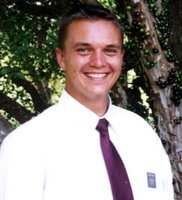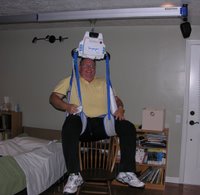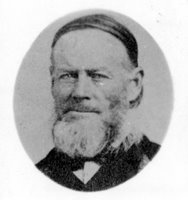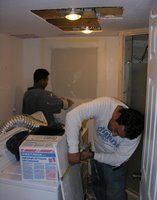11,000 Hits and Great Advice
 If you check out the map/counter on the bottom of this blog, you see the map showing where you readers and friends are from. We've had over 10,800 hits since mid May. If you click on the map, then the various areas of the world, you can get a more detailed picture of where you all are (like the ones shown). We are so impressed!
If you check out the map/counter on the bottom of this blog, you see the map showing where you readers and friends are from. We've had over 10,800 hits since mid May. If you click on the map, then the various areas of the world, you can get a more detailed picture of where you all are (like the ones shown). We are so impressed!Tim found the following article going through some old files tonight. We thought you'd enjoy it:
The Best Advice I Ever Had
Once when I was facing decision that involved considerable risk, I went to a friend much older and wiser than myself. "I'd go ahead," I said unhappily, "if I were sure I could swing it. But . . ."
He looked at me for a moment then scribbled ten words on a piece of paper and pushed it across the desk. That single sentence contained the best advice I've ever had Be bold—and mighty forces will come to your aid.
The words my friend had written were, I discovered later, a quotation from The Conquest of Fear by Basil King. They made me see clearly that when I had fallen short in the past, it was seldom because I had tried and failed. It was usually because I had let fear of failure stop me from trying at all. Fear is the most paralyzing of all emotions. It can stiffen the muscles and stupefy the mind and the will.
 On the other hand, whenever I had plunged into deep water, impelled by a flash of courage or just plain pushed by the rude hand of circumstance, I had always been able to swim until I got my feet on the ground again.
On the other hand, whenever I had plunged into deep water, impelled by a flash of courage or just plain pushed by the rude hand of circumstance, I had always been able to swim until I got my feet on the ground again.
Be bold—that is no exhortation to be reckless or foolhardy. Boldness means a deliberate decision, from time to time, to bite off more than you are sure you can chew. And there is nothing mysterious about the mighty forces referred to. They are the latent powers that all of us possess: energy, skill, sound judgment, creative ideas—yes, even physical strength and endurance in far greater measure than most of us realize.
In other words, boldness can create a state of emergency to which the organism responds. I once heard a famous mountaineer say that occasionally a climber will get himself into a position where he can't back down; he can only go up. He added that sometimes he put himself into such a spot on purpose. "When there's nowhere to go but up," he said, "you jolly well go up!”
 The same principle works just a surely in something as common place as accepting the chairmanship of a civic committee or seeking; more responsible job. In either case you know you'll have to deliver—or else. And, unless you're hopeless! unqualified, you will deliver. You pride, competitive instinct and sense of obligation will see to it that you do.
The same principle works just a surely in something as common place as accepting the chairmanship of a civic committee or seeking; more responsible job. In either case you know you'll have to deliver—or else. And, unless you're hopeless! unqualified, you will deliver. You pride, competitive instinct and sense of obligation will see to it that you do.
Admittedly, those particular mighty forces are spiritual ones. But they are more important than physical ones. While it was a hurtling pebble's centrifugal force that killed Goliath, it was courage that enabled David to face the Philistine giant in the first place.
It's curious how spiritual forces often have their counterparts in the physical world. A college classmate of mine was a crack football player, noted particularly for his fierce tackling even though he weighed much less than the average varsity player. Someone expressed surprise that he didn't get hurt. "Well," he said, "it goes back to something I discovered when I was a timid youngster playing sandlot football. In one game I suddenly found myself confronting the opposing fullback, who had nothing but me between him and our goal line. He looked absolutely gigantic! I was so frightened that I closed my eyes and hurled myself at him like a panicky bullet—and stopped him cold. Right there I learned that the harder you tackle a big player, the less likely you are to be hurt. The reason is simple: momentum equals weight times velocity."
So if you are bold enough, even the laws of motion will come to your aid.
This trait—a willingness to extend yourself to the utmost—is not one that can be acquired overnight. But it can be taught to children and developed in adults. Confidence is a cumulative thing.
To be sure, there will be setbacks and disappointments in any program of expanded living; boldness in itself is no guarantee of success. But the person who tries to do something and fails is a lot better off than the person who tries to do nothing and succeeds.
 Bold self-confidence and decisiveness often mark leaders in the business world. The most effective executive I ever worked for was a man who made almost instantaneous decisions. "At least," he used to say wryly, "I make my mistakes quickly." On one occasion someone asked this man if he didn't believe in the adage "Look before you leap."
Bold self-confidence and decisiveness often mark leaders in the business world. The most effective executive I ever worked for was a man who made almost instantaneous decisions. "At least," he used to say wryly, "I make my mistakes quickly." On one occasion someone asked this man if he didn't believe in the adage "Look before you leap."
"No," he said cheerfully. "The trouble with that axiom is if you look too long, or too often, you never leap at all."
A willingness to take chances, a solid faith in the individual's ability to cope with just about any problem—these characteristics are part of the American tradition. Is the' spirit dying out? Some people claim that our preoccupation with security is weakening it. Initiative, they say, is the instinctive response to the lack of material comfort.
I disagree; people, I believe, will always seek new and more challenging worlds to conquer. When I was a boy, a man visited our class and was invited to say a few words. I don't remember who he was, but I've never forgotten what he said: "Love life. Be grateful for it always. And show your gratitude by not shying away from its challenges. Always try to live a little bit beyond your capacities—and you'll find your capacities are greater than you ever dreamed."













